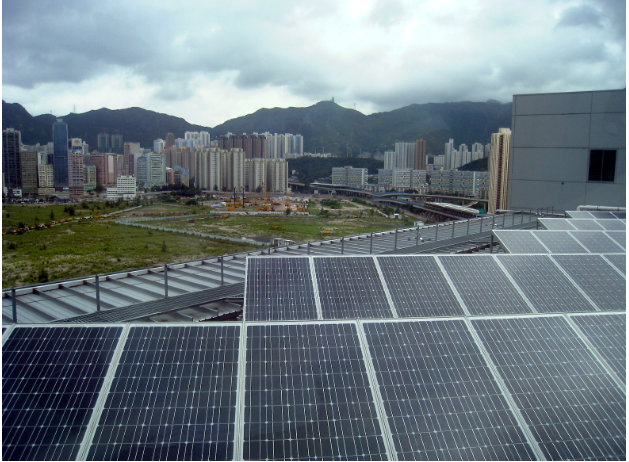Small businesses play a crucial role in driving economic growth and creating employment opportunities, particularly in developing regions. However, many of these businesses face significant challenges, and one of the most pressing issues is the lack of reliable and affordable energy sources.
Did you know that nearly 789 million people in developing countries lack access to electricity? This staggering statistic highlights the urgent need for sustainable energy solutions to propel economic development while safeguarding the environment. Enter solar energy, a game-changing technology that has the power to transform the landscape of small businesses in these regions.
The cost of energy is a major concern for entrepreneurs in developing countries. Traditional energy sources often come with exorbitant price tags, eating into already tight profit margins. According to research, small and medium-sized enterprises in these areas can spend up to 30% of their operating costs on energy expenses alone. This financial strain hinders business growth and innovation, limiting the potential for success.
However, solar energy offers a beacon of hope. Solar solutions not only provide a sustainable and eco-friendly alternative to conventional energy sources but also come with a promise of long-term savings. By harnessing the abundant sunlight available in developing countries, small businesses can significantly reduce energy costs and allocate more resources to expand their operations and improve products and services.
Moreover, the environmental impact of traditional energy sources, such as fossil fuels, cannot be ignored. Carbon emissions from burning fossil fuels contribute to global warming and air pollution, further exacerbating climate change. The adoption of solar energy can help small businesses reduce their carbon footprint, promoting a greener image and boosting customer appeal in an increasingly eco-conscious market.
So, if you’re ready to explore how solar energy can be a game-changer for small businesses in developing countries, buckle up and join us on this enlightening journey! Together, let’s uncover the boundless potential of solar power to drive economic growth, empower entrepreneurs, and create a brighter, more sustainable future for all.
Challenges Faced by Small Businesses in Developing Countries
First, we need to understand the challenges faced by small businesses in adopting solar energy.
Lack of Access to Reliable Electricity
In many developing countries students pay to do my essay for me and access to reliable electricity remains a persistent challenge for small businesses. Frequent power outages disrupt daily operations, leading to decreased productivity and potential revenue losses. Small business owners often resort to expensive diesel generators as backup power sources, which further strain their already limited financial resources. According to the International Energy Agency (IEA), around 573 million businesses in developing regions lack access to reliable electricity, hindering their growth and expansion.
High Energy Costs
The soaring energy costs in developing countries pose a significant burden on small businesses. Conventional energy sources, which heavily rely on imported fuels, come with escalating price tags, impacting businesses’ profitability. For many entrepreneurs, a substantial portion of their budget goes towards paying for electricity, leaving less room for investment in technology, employee training, and business expansion. As a result, small businesses struggle to remain competitive in the market and may face challenges in sustaining long-term growth.
Environmental Impact of Traditional Energy Sources
The extensive use of traditional energy sources, such as coal and fossil fuels, has severe environmental consequences. Small businesses that heavily depend on these non-renewable resources contribute to carbon emissions and air pollution, further exacerbating climate change. The World Health Organization estimates that air pollution from energy production leads to approximately 4.2 million premature deaths worldwide each year. This not only harms the planet but also poses risks to public health, making a compelling case for transitioning to cleaner energy alternatives.
Limited Financial Resources for Business Growth
Small businesses in developing countries often struggle with limited financial resources. Acquiring and maintaining traditional energy sources, such as grid electricity, requires significant upfront costs and ongoing expenses. As a result, small business owners may find it challenging to allocate funds for other critical aspects of their operations, including marketing, product development, and employee wages. This financial constraint hampers their ability to invest in growth initiatives and can hinder their overall success.
The Potential of Solar Energy for Small Businesses
Now, let’s have a look at how effective solar energy could be for small businesses in the developing countries.
Affordable and Sustainable Energy Solution
One of the most significant advantages of solar energy for small businesses is its affordability and sustainability. Once the initial setup cost of solar panels is covered, businesses can tap into a virtually free source of energy – the sun. Solar energy systems require minimal maintenance, reducing long-term operational costs compared to traditional energy sources. This affordability makes solar energy an attractive solution for small businesses looking to save money and enhance their financial stability.
Reduced Energy Costs and Long-term Savings
By harnessing solar energy, small businesses can significantly reduce their energy costs over time. The ability to generate electricity on-site means they become less reliant on expensive grid electricity or fuel-based generators. Studies have shown that businesses that adopt solar energy can save thousands of dollars annually on energy expenses. These long-term savings not only boost profitability but also offer greater financial flexibility for business expansion and development.
Environmental Benefits and Positive Brand Image
Embracing solar energy demonstrates a commitment to environmental sustainability and responsible business practices. By reducing carbon emissions and dependence on fossil fuels, small businesses contribute to combating climate change and minimizing their ecological footprint. This environmentally conscious approach enhances their brand image and appeal to customers who prioritize eco-friendly businesses. Additionally, displaying a strong social and environmental consciousness can attract socially responsible investors, potentially opening up new funding opportunities for business growth.
Government Incentives and Support for Solar Adoption
In recognition of the numerous benefits of solar energy, many developing countries offer various incentives and support mechanisms to encourage small businesses to adopt solar technology. Government subsidies, tax credits, and low-interest loans are some of the incentives designed to offset the initial investment costs and make solar energy more accessible. Additionally, some governments facilitate the creation of micro-financing programs targeted at small businesses, enabling them to finance solar projects without significant financial burdens. These supportive policies foster a favorable environment for solar adoption, empowering small businesses to embrace sustainable practices and thrive in a dynamic market.
How Solar Energy Can Be A Game Changer
While I was searching on the same topic on the internet to write my essay, I ran through a wonderful article, which concludes that solar energy can be a game-changer for increasing small business profitability in developing countries. By harnessing the power of the sun, businesses can enjoy numerous benefits that contribute to their growth and success. Here are some key points highlighting how solar energy can positively impact small businesses in developing nations:
- Cost Savings: Solar energy offers an affordable and sustainable alternative to expensive grid electricity or fuel-based generators. By reducing energy costs, small businesses can allocate more funds towards business development and expansion.
- Long-Term Financial Stability: Once the initial setup cost is covered, solar panels provide free energy for years, offering long-term savings and greater financial stability for small businesses.
- Environmental Responsibility: Embracing solar energy showcases a commitment to environmental sustainability, enhancing a business’s reputation and attracting eco-conscious customers.
- Government Incentives: Many developing countries provide subsidies, tax credits, and low-interest loans to incentivize solar adoption, reducing the financial burden for small businesses.
- Increased Resilience: Solar-powered businesses are less vulnerable to power outages and rising energy costs, ensuring continuity of operations even in challenging circumstances.
- Positive Brand Image: Demonstrating a dedication to clean energy practices can create a positive brand image, leading to increased customer loyalty and brand trust.
- Job Creation: As small businesses expand with improved profitability, they can create more job opportunities, contributing to local economic growth.
- Reduced Carbon Footprint: By relying on renewable solar energy, small businesses can significantly reduce their carbon footprint, contributing to global efforts in combating climate change.
- Energy Independence: Solar energy allows small businesses to become self-sufficient in their energy needs, reducing reliance on external energy providers.
- Social Impact: Solar energy adoption can benefit local communities, improving access to clean energy and fostering social development.
Solar energy according to get health articles is a powerful tool for small businesses in developing countries to increase profitability while aligning with environmentally responsible practices. By embracing solar technology, these businesses can unlock new opportunities for growth, financial stability, and a positive impact on their communities.








